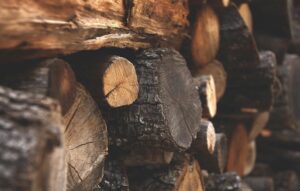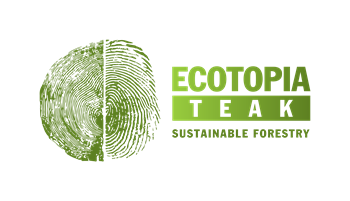
What does Mercosur represent for Panama?
Originally composed of Brazil, Argentina, Uruguay, Paraguay, and Venezuela (though the latter has been suspended since 2017), the Southern Common Market (Mercosur) boasts an annual trade balance exceeding $600 billion, with China, the United States, and the Netherlands as its main markets.
Alex E. Hernández

During the swearing-in ceremony as president-elect, José Raúl Mulino provided details of the actions he will take once he assumes control of the country on July 1.
He spoke about the importance of expanding the Panama Canal watershed, the «My First Job» program, and the management of public funds, topics that, according to the private sector, should be included in the agenda for the first 100 days of the elected president’s administration.
Mulino also mentioned foreign trade and how it can help Panama’s agricultural sector increase its production by accessing more markets.
The president-elect said that the international community has shown signs of establishing trade alliances with the country, and revealed that President Luiz Inácio Lula da Silva shared the idea of initiating talks for Panama to negotiate a Free Trade Agreement (FTA) with Mercosur.
Originally composed of Brazil, Argentina, Uruguay, Paraguay, and Venezuela (the latter suspended since 2017), the Southern Common Market (Mercosur) boasts an annual trade balance exceeding $600 billion, with China, the United States, and the Netherlands as its main markets.
The trade bloc, which includes associate states such as Chile, Colombia, Ecuador, Guyana, Peru, Suriname, and Bolivia, primarily exports minerals, soy, meat, and fuel, while importing nuclear reactors, boilers, machinery, mechanical appliances, electrical equipment, mineral fuels, mineral oils, and mineral waxes.
According to Mulino, achieving an FTA with Mercosur would provide Panama with significant political and economic leverage, complementing existing agreements with Central America and the Dominican Republic. “We must open doors for exporting our products, ensuring our entrepreneurs have government support to find these markets, without harming our own, but most importantly, overcoming the agricultural sector’s limitations, enabling it to produce food and grains for the world, through necessary incentives to plant more, sell more here, and export more abroad,” the president-elect stated.
What Would Seeking an FTA with Mercosur Mean for Panama?
According to the platform of the Office of Trade Intelligence (Intelcom) of the Ministry of Commerce and Industries, the volume of Panamanian exports to Mercosur countries is low, with none among the top 10 destinations for Panamanian exports, which include China, Japan, the United States, the Netherlands, India, South Korea, Canada, Spain, and Germany.
Between 2018 and the first quarter of 2024, Panamanian exports to Brazil, Argentina, Uruguay, and Paraguay, which together represent a market of 273.9 million people, reached $39.8 million, with 2018 marking the highest volume in the past 15 years at $8.4 million.
Individually, Brazil is the primary destination within the original Mercosur members for Panamanian exporters, accounting for over 80% of shipments. According to Intelcom, Panamanian exports to Brazil, Uruguay, Argentina, and Paraguay are led by aluminum waste, frozen fish (excluding fillets), iron and copper scrap, fat and oil, cocoa, recyclable cardboard, and pharmaceuticals, among others.
Exporters’ Perspectives and Actions to Be Taken
Bianca Morán, president of the Panamanian Association of Exporters (Apex), views Mulino’s words about seeking mechanisms to increase the country’s foreign trade positively.
Regarding the idea of pursuing an FTA with Mercosur, exporters believe it is crucial to explore areas of cooperation before embarking on trade agreement negotiations. Panama currently has 23 active trade agreements, including FTAs, Trade Promotion Agreements, and Commercial Alliances.
Intelcom data indicates that of the total Panamanian exports at the end of the first quarter of 2024, amounting to $187 million, 82.1% were destined for countries with which Panama has an active trade agreement.
“In terms of trade blocs as destinations for our exports, the European Union ranks first, followed by the Central American Common Market (MCCA) and the Latin American Integration Association (ALADI),” details the Office of Trade Intelligence.
Morán emphasized the importance of reaching a consensus with the export sector before initiating FTA negotiations, noting that the sector is currently focused on expanding its presence in the Caribbean and Europe. “We are focused on migrating to certified markets that pay better for Panamanian products,” she explained.
Other exporters suggested that Panama should focus on the quality of its products, given its small size and low export volume, making it essential to prioritize value-added products for better investment returns.
Recommendations for the Incoming Administration
Apex’s president highlighted the need for the new government to modernize institutions to boost foreign trade, noting that it is currently easier to import than export.
“We need an export plan that modernizes the systems of institutions involved in foreign trade. While the Ministry of Commerce and Industries has a high percentage of digitalization in its processes, other ministries like Agricultural Development and the Environment are different, and their platforms are not interconnected to facilitate bureaucratic procedures,” she explained.
Raúl Montenegro, president of the Panamanian Industrial Union (SIP), added that, compared to other countries, processing time in Panama can be up to six times longer, complicating the private sector’s operations.
In his opinion, the incoming government should focus on reducing the time required for businesses to obtain permits and authorizations for operations and exports. Apex also stressed the importance of developing and promoting a national brand, which Panama lacks compared to other countries, to increase the visibility of its products.

About us
Ecotopia Teak, S.A., we are a family-owned company dedicated to reforestation, harvesting, and exporting wood from commercial plantations. We work under high production standards and with social responsibility to obtain high-quality wood according to the needs and demands of national and international markets. Additionally, we actively contribute to the local economy by creating employment opportunities in the communities where we operate. Our commitment is to lead the industry in sustainable reforestation and wood production, preserving our natural resources and building a greener and more sustainable future.


